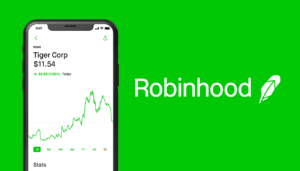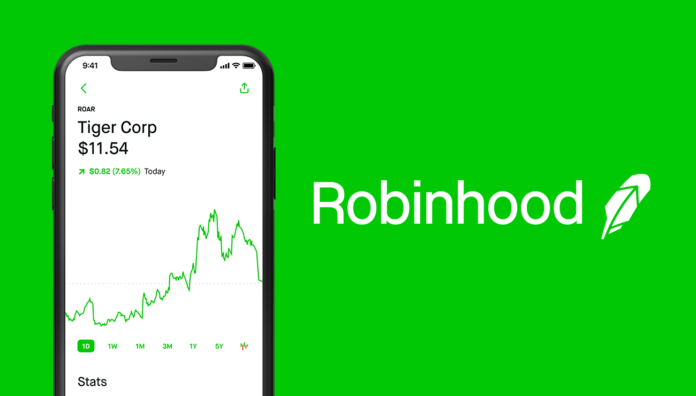
In the ever-evolving world of finance, Robinhood has established itself as a game-changer. Since its inception, the platform has disrupted traditional investment strategies, democratizing access to the stock market for millions of users. As we step into 2024, Robinhood continues to evolve, shaping investment strategies for the digital age. This article explores how Robinhood is transforming the landscape of investing, particularly for a new generation of tech-savvy investors.
The Rise of Robinhood: A Brief History
Founded in 2013, Robinhood burst onto the scene with a mission to “democratize finance for all.” The platform introduced commission-free trades, a radical shift from the traditional brokerage model that often charged fees per transaction. This innovation attracted a large, younger audience who were previously deterred by the high costs of investing. By 2024, Robinhood boasts over 30 million users, solidifying its place as a major player in the financial sector.
Commission-Free Trading: The New Norm
Robinhood’s most significant contribution to the investment world is undoubtedly its commission-free trading model. By eliminating fees, the platform lowered the barrier to entry for new investors, allowing anyone with a smartphone to participate in the stock market. This approach has forced traditional brokerages to adapt, with many now offering their own versions of commission-free trading. However, Robinhood remains the leader, continuously innovating to stay ahead of the competition.
Fractional Shares: Democratizing Ownership
One of Robinhood’s most transformative features is the introduction of fractional shares. This allows users to buy a portion of a stock rather than a full share, making expensive stocks like Amazon or Tesla accessible to everyone. This feature is particularly appealing to younger investors who may not have large amounts of capital but want to diversify their portfolios. By offering fractional shares, Robinhood has further democratized the investment landscape, enabling users to build diversified portfolios with minimal investment.
Cryptocurrency: Embracing the Future of Finance
In 2024, cryptocurrency continues to gain traction as a legitimate asset class, and Robinhood has been at the forefront of this movement. The platform allows users to trade popular cryptocurrencies like Bitcoin, Ethereum, and Dogecoin alongside traditional stocks. This integration of crypto trading into a mainstream investment platform has opened the door for more people to explore the world of digital currencies. Robinhood’s user-friendly interface and educational resources make it easier for novice investors to understand and engage with this complex market.
Cash Management and Debit Cards: Expanding Financial Services
Beyond investing, Robinhood has expanded its services to include cash management and a debit card, effectively turning the platform into a one-stop shop for financial needs. With the Robinhood Cash Card, users can earn rewards on their everyday purchases, manage their spending, and seamlessly move money between their investing and spending accounts. This integration of banking and investing services reflects a broader trend in the financial industry, where the lines between different types of financial services are increasingly blurred.
Social Investing: The Power of Community
Robinhood has also embraced the concept of social investing, where users can share their portfolios, discuss strategies, and even follow the trades of others. This community-driven approach has resonated with younger investors who value transparency and collaboration. In 2024, Robinhood has enhanced its social features, introducing tools that allow users to see the most popular trades on the platform, follow influential investors, and participate in investment challenges. This social aspect of investing is redefining how people engage with the stock market, making it a more interactive and communal experience.
Educational Resources: Empowering Investors
Understanding the complexities of the stock market can be daunting, especially for beginners. Robinhood addresses this challenge by offering a wealth of educational resources designed to empower users. From in-app tutorials to articles and podcasts, Robinhood provides users with the knowledge they need to make informed investment decisions. In 2024, the platform has introduced personalized learning paths, guiding users through the basics of investing, advanced trading strategies, and everything in between. This commitment to education not only helps users become better investors but also builds trust in the platform.
The Impact of Robinhood on Traditional Financial Institutions
Robinhood’s rise has had a profound impact on traditional financial institutions. The platform’s success has forced legacy firms to rethink their business models, with many now offering commission-free trades and other features that were once Robinhood’s unique selling points. Moreover, Robinhood’s user-centric approach has set a new standard for the industry, emphasizing the importance of accessibility, transparency, and innovation. As a result, the entire financial sector is undergoing a transformation, with Robinhood leading the charge.
Challenges and Criticisms
Despite its success, Robinhood has faced its share of challenges and criticisms. The platform’s role in the GameStop trading frenzy of early 2021 brought it under intense scrutiny, with regulators and users alike questioning its business practices. Issues such as outages during high trading volumes and the controversial payment for order flow model have raised concerns about the platform’s transparency and reliability. In 2024, Robinhood is working to address these issues, with a focus on improving its infrastructure, enhancing customer support, and increasing transparency around its revenue model.
The Future of Robinhood: What Lies Ahead
As we look ahead to the future, Robinhood shows no signs of slowing down. The platform is constantly innovating, exploring new ways to enhance the user experience and expand its offerings. In 2024, we can expect to see Robinhood continue to push the boundaries of what a financial platform can be. Whether it’s through the integration of new asset classes, the introduction of advanced trading tools, or the expansion of its social features, Robinhood is poised to remain at the forefront of the financial revolution.
Conclusion: Robinhood’s Legacy
Robinhood’s impact on the financial industry is undeniable. By democratizing access to the stock market, introducing innovative features like commission-free trading and fractional shares, and embracing the future of finance with cryptocurrency, Robinhood has transformed investment strategies for the digital age. As the platform continues to evolve in 2024 and beyond, it will likely play a key role in shaping the future of investing, empowering a new generation of investors to take control of their financial futures.


















